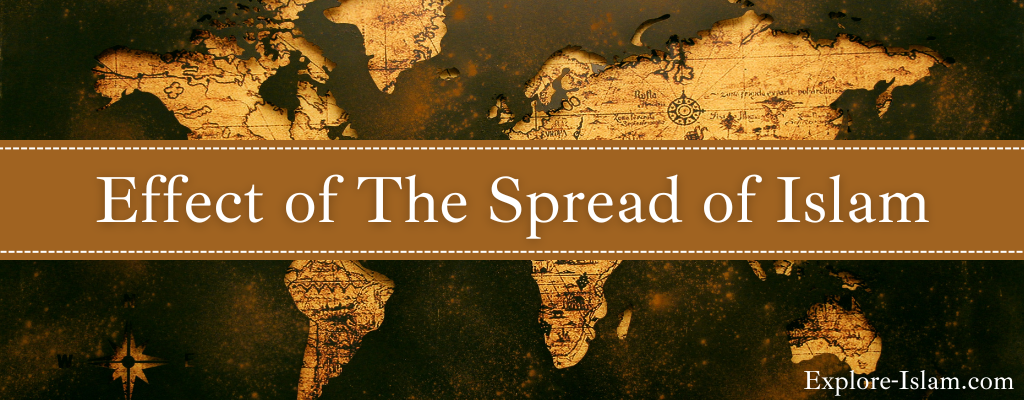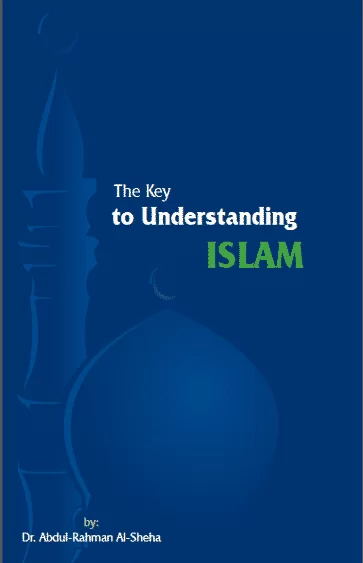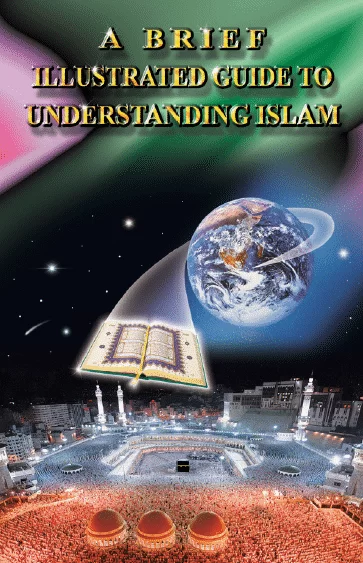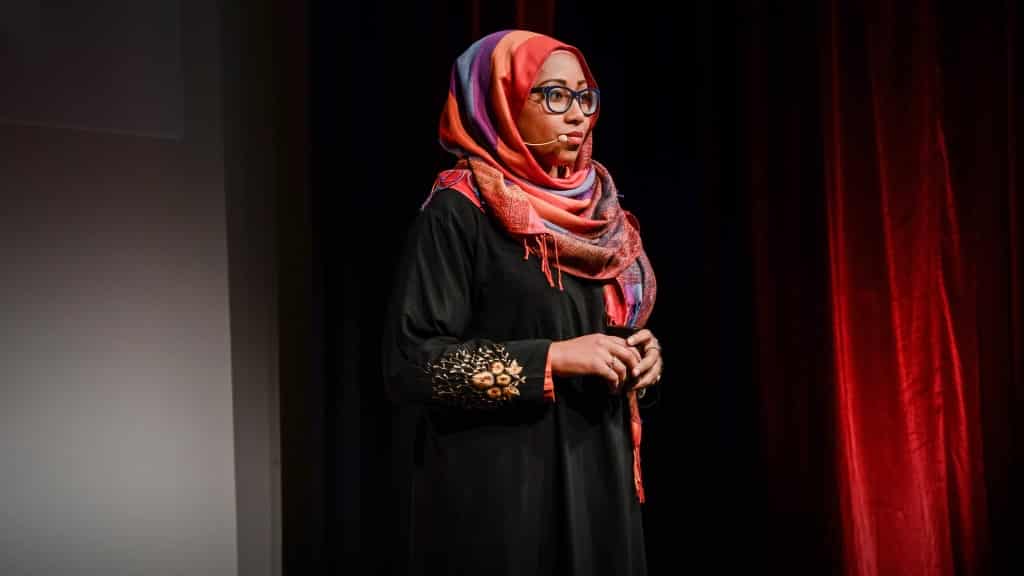Have you ever wondered what is the effect of the spread of Islam and why was the spread of Islam important? Here is a quick review on the most important contributions of Islam to the social, economic, spiritual, cultural, and intellectual lives.
In this article, we will answer the question how did the spread of Islam impact the world? providing historic evidence that highlights the impact of Islam on various life aspects.
What is the effect of the spread of Islam?
The spread of Islam had a profound effect on various aspects of life, from economic advancements to social reforms. In agriculture, Islamic teachings emphasized sustainable land use, leading to innovations in irrigation, fertilizers, and pest control. Trade flourished as Muslim merchants pioneered direct trade along the Silk Road, connecting the Arabian Peninsula with Asia and beyond.
This not only boosted commerce but also facilitated cultural exchange. Politically, Islamic governance introduced more inclusive systems, ensuring fair treatment for marginalized groups. While not a utopia, Islamic rule fostered stability and social justice, as observed by historians.
Socially, Islam revolutionized human rights by advocating for zakat (charitable giving) to support the less fortunate. Women gained unprecedented rights, including inheritance, financial independence, and divorce. Islam also transformed the status of slaves, emphasizing humane treatment and promoting their freedom.
These reforms, supported by Quranic verses and prophetic teachings, gradually shifted societal norms. Even Western scholars have acknowledged that Islamic governance promoted religious tolerance and social cohesion, reducing sectarian conflicts in conquered lands.
In fact, the spread of Islam affected all aspects of life starting from major social, economic and political reforms to the tasty cup of coffee you drink every morning!
1. The Economic Effect of Islamic Spread
The spread of Islam revolutionized agriculture through sustainable land use, improved irrigation, and new crops, while trade expanded globally via the Silk Road, fostering economic growth and cultural exchange.
Islamic Impact on Agriculture
Prophet Muhammad ﷺ emphasized the importance of agriculture, considering it a virtuous act for which Muslims are rewarded. He said:
“Never does a Muslim plant trees or cultivate land and birds or a man or a beast eat out of them but that is a charity on his behalf”.
(Sahih Muslim 1553 a)
This hadith highlights the concept of sustainability, encouraging the cultivation of land in ways that benefit both people and other creatures, thus promoting biodiversity and maintaining ecological balance.
The Sunnah also encourages reclaiming abandoned land and putting it to productive use. The Prophet ﷺ said:
“He who cultivates land that does not belong to anybody is more rightful (to own it).”
This directive underscores the importance of utilizing neglected natural resources rather than leaving them unproductive, aligning with the principles of sustainable agriculture.
This prophetic guidance reflects the spirit of hope and reinforces efforts to combat desertification and expand green spaces, which are crucial for preserving biodiversity and addressing climate change challenges.
Muslims had major contributions in the field of agriculture including, introducing new crops, enhancements in methods of irrigation, in addition to using fertilizers and pest control methods.
Islamic Influence on Trade
One of the most important concepts introduced by Muslim merchants by the 8th Century was “direct trade”. Which means that instead of just trading locally or transporting goods from one hand to another through short journeys, Muslim traders travelled the whole length through the “Silk Road”. This led to the spread of new goods from the Arabian peninsula to different parts of Asia, in addition to the enhancement of cultural exchange and social interaction between Muslim traders and native merchants along these trade routes.
2. The Political and Social Effects of Islamic Spread
Islam carried remarkable social reforms in the Arabian Peninsula. These reforms strongly reinforced and protected the privileges of the marginalised segments of the society. The reason why most of the early followers of the Islamic call among Arabs were the slaves, the poor, and women
Islam and Social Solidarity
Islam also introduced the concept of zakat (regular obligatory charity); which is paying alms to the needy.
Allah says in Surah Al-Baqarah, verse 43:
“And establish prayer and give zakah and bow with those who bow [in worship and obedience]”
Women’s Rights in Islam
A woman in Islam completes a man, a man of virtues treats women with honor, mercy and respect, and is by no means allowed to humiliate or degrade women.
Additionally, Muslim women were given the right to contribute to various social and economic activities and were given the right to become financially independent.
Moreover, Islam forbade femicide and gave women the right to inherit, something that wasn’t usually given to women before Islam. In addition to many rights granted, such as the right to obtain divorce.
Allah says in Surah At-Takweer, verse 8,9 (translated):
“And when the girl [who was] buried alive is asked. For what sin she was killed”.
Islam effect on slavery
Slaves in the Arabian Peninsula were deprived of all their rights and were usually mistreated. Slavery was widely practiced without any empathy towards slaves. On the contrary, Islam commanded that slaves should be dealt with as family members.
Narrated Al-Ma’rur:
At Ar-Rabadha I met Abu Dhar who was wearing a cloak, and his slave, too, was wearing a similar one. I asked about the reason for it. He replied, “I abused a person by calling his mother with bad names.” The Prophet said to me, ‘O Abu Dhar! Did you abuse him by calling his mother with bad names? You still have some characteristics of ignorance. Your slaves are your brothers and Allah has put them under your command. So whoever has a brother under his command should feed him of what he eats and dress him of what he wears. Do not ask them (slaves) to do things beyond their capacity (power) and if you do so, then help them.’ ”
(Sahih al-Bukhari 30)
It is worth mentioning that there are dozens of verses in the Quran as well as prophetic Hadith that call for freeing slaves.

Gustave le Bon, the French social psychologist, says in Arab Civilization, p. 459-460:
“What I sincerely believe is that slavery among the Muslims is better than slavery among any other people, and that the situation of slaves in the east is better than that of servants in Europe, and that slaves in the east are part of the family. Slaves who wanted to be free could attain freedom by expressing their wish. But despite that, they did not resort to exercising this right.”
Whereas, Marshall Hodgson said in his book “The Venture of Islam, Volume 1 : The Classical Age of Islam, Page 241”:
“The Arabs won support in Roman territories and probably in Iraq and even parts of Iran by curbing a persecuting ecclesiastic rule and imposing equality among the sects.”
3. The impact of the spread of Islam on Spiritual life?
Islam came with the call to monotheism, which is the oneness of God. On the contrary to what you might have heard about the spread of Islam. The Islamic religion mainly spread through peaceful dawah, migration, trade and intermarriage.
Even with the wide expansion of the Islamic state, citizens of the conquered states were never forced to accept the Islamic belief. Thanks to the plural realism and tolerance of the Islamic states the non-Muslim minorities that represented multiple cultures and ethnicities were able to maintain their unique identities.
Moreover, historians generally acknowledge that Christian and Jewish citizens of Islamic states had more chances to live securely than Muslims living in Christian states.
It was narrated from ‘Abdullah bin ‘Amr that the Messenger of Allah (ﷺ) said:
“Whoever kills a Mu’ahid, will not smell the fragrance of Paradise, even though its fragrance may be detected from a distance of forty years.”
(Sunan Ibn Majah 2686)
In 637, after conquering Jerusalem, the Muslim Caliphate Umar-Bin-Alkhattab permitted the Jews to return to Jerusalem after being banned by the Byzantine state from entering the city.
As for Egypt, the Christians opposed the Byzantine rule and didn’t fight against the Arabs who conquered Egypt. On the contrary, the leader of the Muslim army Amr ibn al-As ended the oppression of the Byzantines to the Coptic Christians, and invited the Christian patriarch back to Egypt from his exile. Additionally, he gave his order to rebuild destroyed churches.
4. The Effect of the Islamic Spread on Cultural and Intellectual Life
From the 10th century and up till now, diverse Islamic regional centers have emerged with their unique cultural styles.
The Islamic contribution to philosophy, mathematics, and medicine, is considered one of the unprecedented events in history.
Moreover, the translation movement in Islam is thought of as one of the most significant intellectual movements in the entire human history.
Summary
The effect of the spread of Islam was not restricted to spiritual life. Nevertheless, it had an extended impact on the varied aspects of life, including the social, economic, intellectual and cultural aspects.
Islam has introduced a wide range of reforms, including enhancement of agriculture and trade, providing women with their social rights, enrichment of the cultural exchange and spreading equity within the members of the society.
Explore More?!
Sign up now for our newsletter to learn more about Islamic faith and practices. Don’t hesitate to contact us in case you have any inquiries about islam!























